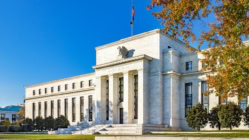
The Costs of Waiting To Buy in 2023
In 2022, mortgage rates skyrocketed from previous pandemic lows, causing higher mortgage payments and reduced purchasing power for homebuyers. Many people waiting to buy a home will look back at the pandemic and regret the opportunity to buy a home before prices increased over 20% year over year in 2021.
The problem with this “housing hindsight” is that we can always look back at prior opportunities to buy cheaper homes that are long gone. Many millennials envy the baby boomer homebuying experience with ultra-low prices that helped reduce the effect of higher interest rates.
The common thread among these stories is that those who bought and held homes early experienced massive appreciation and fixed costs of living, whereas those who stayed on the sidelines, waiting to buy a home, wished they had acted sooner. Appreciation has made homebuyers who bought at the worst of times very wealthy in the long run.
Will The Housing Bubble Burst?
Fear-mongering and social media misinformation have led to a trending belief that rampant increases in home prices and interest rates will inevitably cause a housing market crashing like we saw in 2008. In reality, the market conditions of 2022 are unlike what we saw in 2008.
Firstly, increased lending standards and industry regulation introduced strict compliance and underwriting guidelines, eliminating the funding of “bad loans,” such as the subprime loans of the past.
For housing prices to crash, we would need to see supply increase significantly and demand for housing to fall off. The cost to build homes is still high, especially with increased inflation, so builders have not been able to produce homes in line with pent up demand over the past few years. Without an influx of newly built homes and a new generation of millennials coming of homebuying age, the demand for housing persists, regardless of the rising interest rates.
While some may hope for prices to come down due to reduced purchasing power for new buyers, what is more likely to happen is that appreciation rates will regress closer to historical averages of 3-5%, rather than the 20% outlier of 2021.
Should I Buy Now or Wait Until Next Year?
Provided you have the luxury of deciding when to make a home purchase, this question is rooted in a deeper desire to time the market and avoid the feeling of being “ripped off.”
Timing the Market
Warren Buffett is possibly the most famous investor of the modern era, and he recently stated that he has never timed any of his purchases. Rather, he opts to trust that buying and holding sound investments will produce the greatest returns.
The factors that control home prices and interest rates are unpredictable – those who can accurately predict these factors could and would make a lot of money. Despite the improbability of market timing, many homebuyers think they can do better than investors, banks, and hedge fund managers that make a livelihood off navigating market volatility.
Factors To Consider When Evaluating the Housing Market
Rates + Payments
While rates are hard to predict on a long-term basis, general macroeconomic trends, such as inflation, can signal potential rate changes. When interest rates are on the rise, buyers who want to purchase are wise to act quickly to lock in lower monthly payments, rather than wait it out for lower home prices.
Inversely, those who wait for rates to come back down will find that lower rates will bring many homebuyers back into the market, pushing prices back up and potentially negating any savings in monthly payment.
We often remind clients stories of early 2021 borrowers who walked away from negotiations with sellers over $10K – $15K in price, which would have resulted in less than $50 in monthly payment difference when spread over 30 years. As an alternative, these buyers who were waiting to buy a home, later settled on a home at a higher price and interest rate (and $100’s more in monthly payment).
Prices + Appreciation
It is natural to want a good deal when making any purchase, let alone a home purchase. Borrowers must try to keep a short-term memory of past home prices when considering a future purchase. Prices may seem relatively high (or low), but it is important to remember that homes will historically retain and increase in value over time, so the loan amount you pay will almost certainly be diminished by the equity you gain over the years of homeownership.
Seller’s Vs. Buyer’s Market
Real estate agents often have the best sense of when a market shifts between pro-buyer to pro-seller. When markets are pro-buyer, agents can negotiate seller credits to cover closing costs or temporary buydowns, keep contingencies, and avoid bidding wars with homes on the market much longer. When market conditions flip, buyers must make competitive offers and bidding wars ensue, often leading to increased appreciation for current homeowners.
Inventory
Since the real estate market is driven by supply and demand, homebuyers need to understand the basic concepts that control their market. The supply of homes is mainly affected by the production of new homes via builders, in addition to people looking to sell their homes and exit the market. Since the pandemic, demand for housing has significantly outpaced the construction of new homes, which has lagged due to supply chain shortages and higher cost of materials.
Sellers are also contributing to inventory tightness, as “mortgage rate lockdowns” are leaving sellers reluctant to abandon their low interest rates when they sell.
Inflation
Real estate is a hard asset, meaning it has a tangible value in its functionality. Since everyone needs a place to live, housing will always have value over the long term. Hard assets typically appreciate with inflation, so as the dollar becomes less valuable due to inflation, it will take more of them to purchase a home.
Additionally, when inflation is higher than mortgage rates, the bank is effectively paying borrowers to take their money. For instance, with a 5% fixed rate loan and 7% inflation, borrowers are paying their loans back with 2% less valuable dollars over the course of 30 years.
Is It Crazy To Buy When Rates Are High?
While it may seem to be the worst time to buy when rates are high, this can be the best opportunity to enter the housing market. With inflation rates high, rents will continue to increase. Meanwhile, homeowners have the ultimate protection against inflation via fixed monthly payments. As inflation increases the cost of living for most renters, homeowners keep the same expenses – while property values appreciate and salaries increase over time.
View mortgage rates for April 25, 2024
Buying or Waiting?
After reading this blog, you may be thinking to yourself: If higher rates mean lower prices, and lower rates mean more buyers and higher prices, when is the best time to buy? Is it possible to get low prices and low rates?
“The best time to buy a home was 20 years ago. The second-best time is today”
This is an adaptation of an ancient Chinese proverb which rings true in this case. To get the best price and interest rate long term, you should buy when you are ready to own a home and comfortable with the monthly payment.
Once you have fixed your monthly payment, you can refinance every time rates come down. JVM monitors interest rates for all past clients to offer every opportunity to lower monthly payments with our no cost refinances, starting as soon as 4 months post-closing.
This way you can ride the housing market to the top and while snagging the mortgage rates at the lows!
























